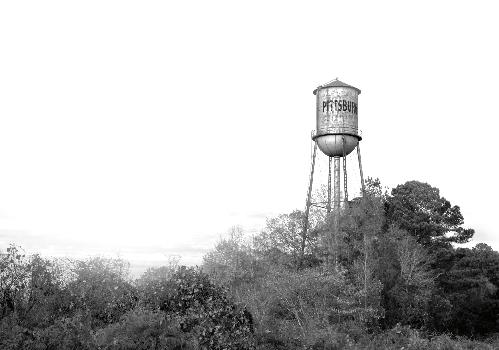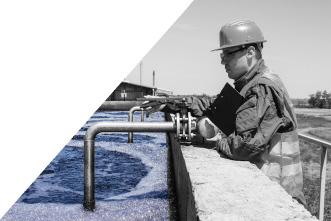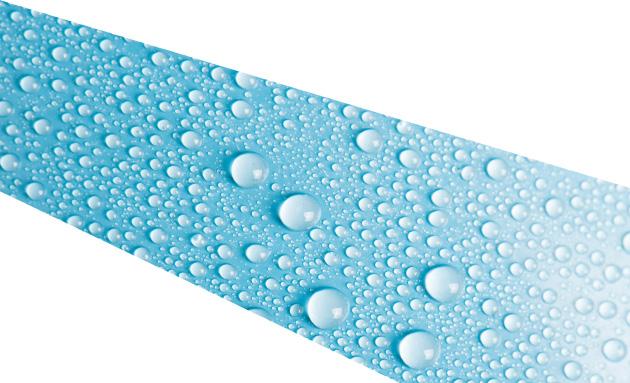
5 minute read
Know Your Flows
Gary Webber, MRWA Wastewater Technician
Throughout the years many of us have heard folks say in conversations, “Small Things Matter”. This applies to many things in life, and it is no different at the wastewater utility. There are fundamental items that demand accurate attention on a scheduled basis. Flow to or from the wastewater treatment facility is one of those small things that really matters. There are several reasons for accurate flow measuring. Without knowing your true flows, it can cost your permitted facility a lot of grief and expense. One must ask themselves; how would an engineer ever design or size anything at the treatment facility or collection system if flow measurements were not accurate or representative of conditions based on customer use and/ or Mother Nature’s influence?
Advertisement
Flow measuring devices come in a lot of different types and styles and are essential in providing accurate data. It would be great if every facility was equipped with a data logging system to record flows around the clock every day of the year. For some systems just having a V-Notch Weir to manually measure flows would be an improvement. Using a flow measuring device to calculate flows every once in a while, is not a responsible way to know your flows. There are too many flow conditions that need recorded on a consistent basis to capture the many different flow variations most collection systems and treatment facilities experience. Flow measuring systems that log data work great in capturing flow information if they are installed and calibrated correctly. So, having a manual flow measuring device helps one determine if there is a calibration issue with the equipment. Lift station run times and drawdown tests can also help measure flows to an extent. The bottom line is, there needs to be some method of determining accuracy with newly installed, temporary, or unproven flow measuring equipment. Once you are confident with the information being recorded then let the data logger go to work.
Once the installation is in place one can determine how fast flows increase or decrease. You can record your true peak flows and low flows in the middle of the night. Dry Weather Flows and Wet Weather Flows can be determined with ease. One should be sure to take care when transferring data to the utilities eDMR Sheet online. If it asks for flows to be recorded in million gallons
Open Channel Flow Meter
(continued from page 21) per day (MGD), make sure the decimal point is in the correct position to reflect the correct flows. Calibrate your existing flow equipment routinely. Care should be given to make sure debris is not present in the flow channel. This can inflate flow measurements. Rectangular Weirs and V-Notch Weirs are normally measured and referenced to a chart for flow determination. Care must be given to utilize the correct weir calculation chart.
Your National Pollutant Discharge Elimination System (NPDES) Permit or your Missouri State Operating Permit require flow measurements to be recorded on a minimal basis for most treatment facilities. For some systems it asks for a 24 hour estimate for flow. This means a single reading of the flow meter to represent the 24-hour flow day. Not to be confused for estimating the facilities flow. Chapter 9- Treatment Plant Operations 10 CSR 209.010 Wastewater Treatment Systems Operation Scope Monitoring calls out for Lagoons to record flow twice a week and mechanical plants to record flow daily Monday – Friday. This is a minimum requirement, but if you truly want to start solving treatment issues, storage issues, process issues, and compliance issues you may want to acquire as much data as you can. Recording accurate flows continuously, both influent and effluent flows, even flows in different sections of the collection system is a great way to Know Your Flows.
Missouri Rural Water Association’s Associate Members/ Service Providers are of great assistance with many aspects of water and wastewater utility needs. Flow measuring experts and engineers are available for contact on MRWA’s Website and in person at our conferences around the state. If you need assistance, please contact MRWA for more information for your utility needs.
Independent Representatives of Tnemec Company, Inc. tnemec.com MIDWEST COATING CONSULTANTS, INC. DUSTIN KEILBEY 816-806-6356 dkeilbey@tnemec.com TAYLOR BUERKY 816-590-5294 tbuerky@tnemec.com
COATING SOLUTIONS, LLC
MICHAEL CERUTTI 314-703-8042 mcerutti@tnemec.com
MRWA_3.5x2.indd 1 9/1/21 8:56 AM
Scott Smith
Mobile: (816) 518-7541 Office: (816) 331-3383 Email: ssmith@seilerinst.com www.seilergeo.com
Code Updates
In-Service Cleaning
If you are interested in having us as your partner, feel free to contact one of our department representatives below
NEW TANKS — Rick DiZinno (270) 826-9000 ext. 2601 EXISTING TANKS — Jordan Pyles (270) 826-9000 ext. 4601

The NRWA Rural Water Loan Fund (RWLF) is a funding program specifically designed to meet the unique needs of small water and wastewater utilities. The RWLF provides low-cost loans for short-term repair costs, small capital projects, or pre-development costs associated with larger projects. The RWLF was established through a grant from the USDA/RUS, and repaid funds used to replenish the fund and make new loans.
Reasons to apply Eligible Projects Include
Contact your State Rural Water Association or National Rural Water Association for help with the application process.
Reasons to apply Eligible Projects Include
For More Information:

• Pre-development (planning) costs for infrastructure projects • Replacement equipment, system upgrades, maintenance and small capital projects • Energy efficiency projects to lower costs and improve sustainability • Disaster recovery or other emergency loans available Contact your State Rural Water Association or Applications, information and forms can be downloaded from the NRWA website, www.NRWA.org/loans. National Rural Water Association for
Email applications to: Or mail to: help with the application process.
nrwarwlf@nrwa.org
Rural Water Loan Funds 2915 South 13th Duncan, OK 73533










